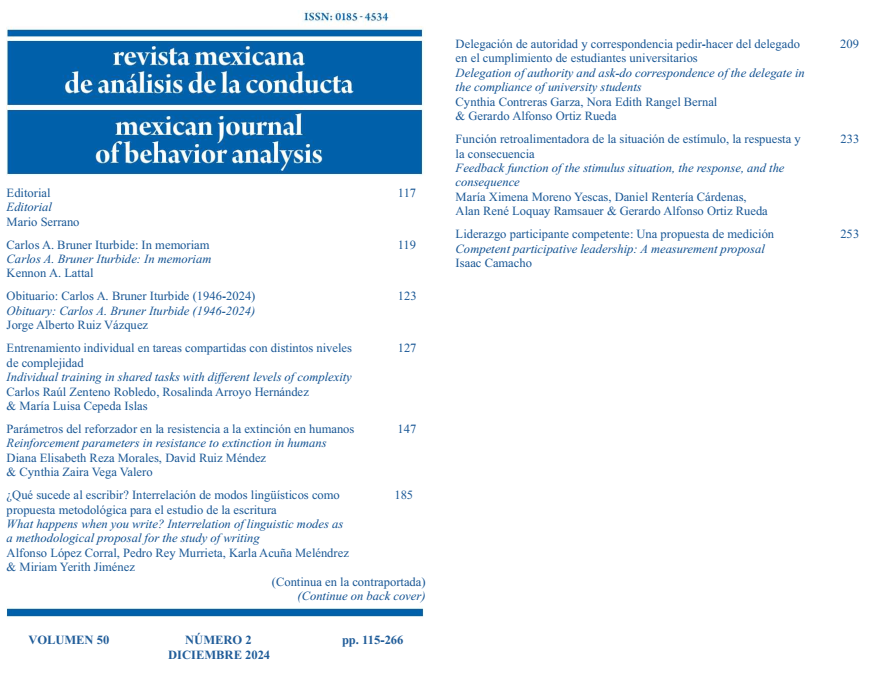Delegation of authority and ask-do correspondence of the delegate in the compliance of university students
Main Article Content
Abstract
Different ways of delegating authority to one of the participants in a group of university students were compared. The influence that the delegate's behavior had on the compliance of the rest of the participants was also analyzed -whether or not the delegate was acting in correspondence with the request that he made during the sessions. A puzzle-assembly task was used, and 32 university students were randomly divided into eight groups exposed to different experimental conditions. After training in authority phase and two diagnostic conditions, groups 1 and 1A, were exposed to a condition in which the experimenter explicitly delegated authority; in groups 2 and 2A, authority was delegated by the group; in groups 3 and 3A, authority was self-delegated; while in groups 4 and 4A, authority was not delegated. Groups 1 to 4 were exposed to correspondence in the delegate's actions concerning his request to the group members, while groups 1A, 2A, 3A, and 4A were exposed to a non-correspondence condition. Results showed that participants in the explicit delegation groups (by the experimenter or by the group) performed more compliance responses. In contrast, participants in the non-delegation groups performed these behaviors in fewer numbers.
